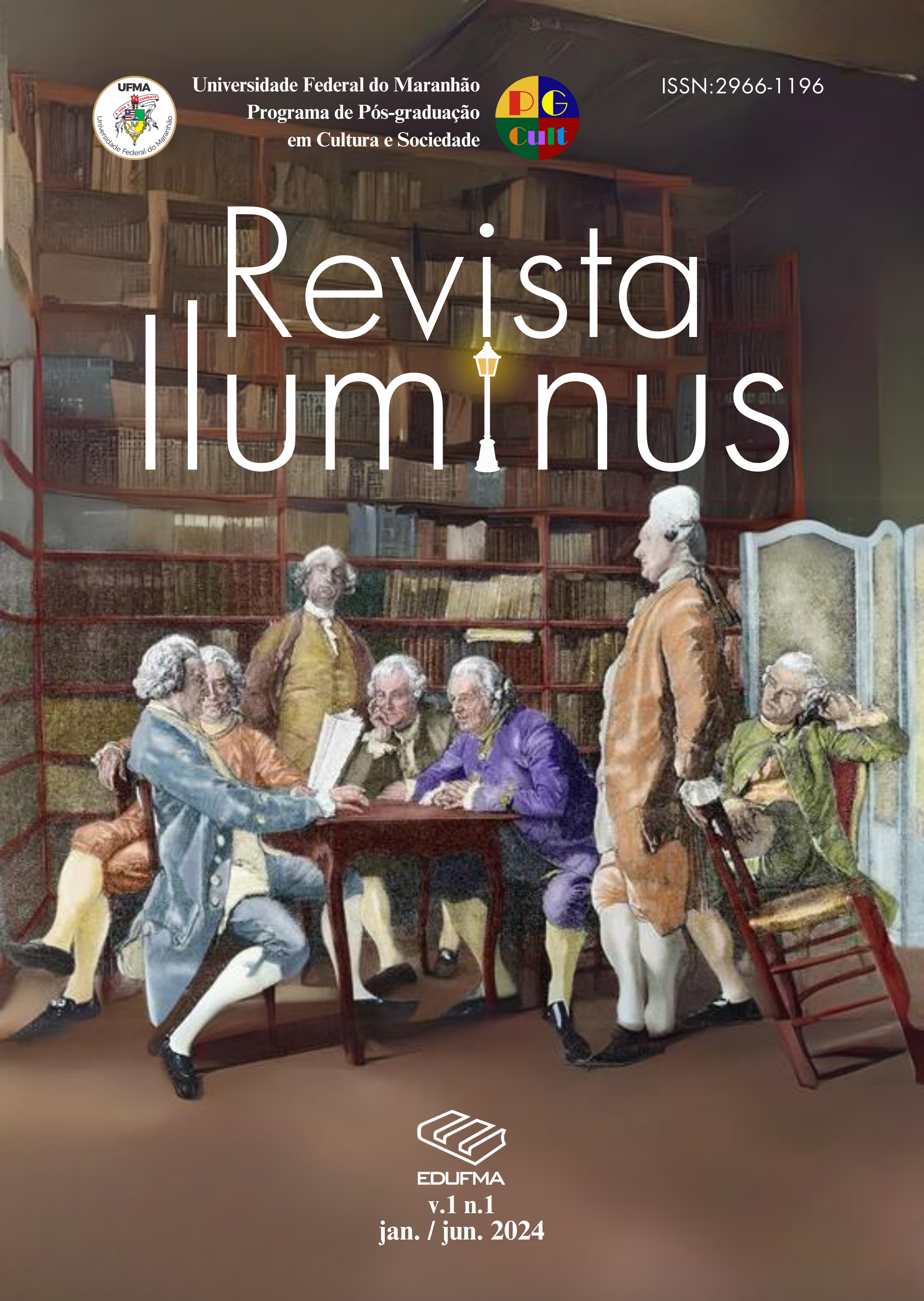Rousseau’s civil religion and the idea of sentiment as a counterpoison
DOI:
https://doi.org/10.18764/2966-1196v1n1.2024.5Keywords:
Medicine, Morals, Politics, Religion, TranslationAbstract
The aim of this article is to examine the expression “sentiments de sociabilité”, which Rousseau relates to the dogmas of civil religion in The Social Contract. From a historical point of view, it examines the linguistic fact that gave the expression “sentiment intérieur” the meaning of moral principle, thus making it possible for Rousseau to admit religious sentiments as motives for human action in the civil order. The analysis of Rousseau’s writings is not restricted to the Contract and seeks to comprehensively understand the concept of self-love, especially in Emile, from the perspective of human species’ improvement thesis, which, in the 18th century, was publicized by works of medicine associated with the social hygiene tradition. All the analyses presented here take as their backdrop the relationship between the idea of “second nature” and the problem of establishing habits that suit members of the social body.
Downloads
References
ARTFL Project. Dictionnaires d’autrefois.URL: https://artflproject.uchicago.edu/content/dictionnaires-dautrefois (Acesso em 15 maio 2024).
BALIBAR, E. Identité et différence: l’invention de la conscience. Paris: Seuil, 1998.
BERNARDI, B. Sur la genèse du concept de religion civile et sa place dans le Contrat social de JeanJacques Rousseau. Éthique, Politique, Religions (Université Lyon 3), n. 8, p. 107-137, 2016.
BOTO, C. O Emílio como categoria operatória do pensamento rousseauniano. In: MARQUES, J. O. A. (Org.). Verdades e mentiras: 30 ensaios em torno de Jean-Jacques Rousseau. Ijuí: Ed. Unijuí, 2005. p. 369-387.
BOTO, C. Instrução pública e projeto civilizador: o século XVIII como intérprete da ciência, da infância e da escola. São Paulo: Ed. Unesp, 2017.
CONDILLAC, E. Ensaio sobre a origem dos conhecimentos humanos. Tradução por P. P. Pimenta. São Paulo: Ed. Unesp, 2018.
FOUCAULT, M. Histoire de la sexualité I: la volonté de savoir. Paris: Gallimard, 1976.
GROTIUS, H. Le droit de la guerre et de la paix. Tradução por J. Barbeyrac. Amsterdam, 1724.
KAWAUCHE, T. Ciência e direito no contratualismo moderno: o caso Rousseau. In: FAÇANHA, L. S.; CARVALHO, Z. J. V. (Org.). Rousseau, Kant & Diálogos. São Luís: EDUFMA, 2019.
KAWAUCHE, T. Educação e filosofia no Emílio de Rousseau. São Paulo: Ed. Unifesp/FAPESP, 2021.
LEPAN, G. Jean-Jacques Rousseau et le patriotisme. Paris: Honoré Champion, 2007.
LE CAMUS, A. La médecine de l’esprit… Paris, 1753.
LE MENTHÉOUR, R. La manufacture de maladies: la dissidence hygiénique de Jean-Jacques Rousseau. Paris: Garnier, 2012.
LOCKE, J. Essai philosophique concernant l’entendement humain. Tradução por P. Coste. Edição de E. Naert. Paris: J. Vrin, 1972.
MAAS, W. P. O cânone mínimo: o Bildungsroman na história da literatura. São Paulo: Ed. Unesp, 2000.
MALEBRANCHE, N. A busca da verdade: textos escolhidos. Tradução por P. J. Smith. São Paulo: Discurso Editorial, 2004.
MENIN, M. Entre les choses et l’âme: la “médecine de l’esprit” au XVIIIe siècle. In: BOUDONMILLOT, V.; BUZZI, S. (Dir.). Guérison, religion et raison: de la médecine hippocratique auxneurosciences. Paris: Boccard, 2017. p. 183-192.
MORELLY, É.-G. Code de la nature. S.l., 1755.
PRADO, R. A. A jornada e a clausura: figuras do indivíduo no romance filosófico. São Paulo: Ateliê, 2003.
PUFENDORF, S. Le droit de la nature et des gens. Tradução por J. Barbeyrac. Amsterdam, 1706.
ROUSSEAU, Jean-Jacques.Les confessions. In: Œuvres complètes, t. I. Paris: Gallimard, 1959 (Col. Bibl. Pléiade).
ROUSSEAU, Jean-Jacques. Julie ou La nouvelle Héloïse. In: Œuvres complètes, t. II. Paris: Gallimard, 1964a (Col. Bibl. Pléiade).
ROUSSEAU, Jean-Jacques. Discours sur l’origine et les fondements de l’inégalité parmi les hommes. In: Œuvres complètes, t. III. Paris: Gallimard, 1964b (Col. Bibl. Pléiade).
ROUSSEAU, Jean-Jacques. Du contrat social. In: Œuvres complètes, t. III. Paris: Gallimard, 1964c (Col. Bibl. Pléiade).
ROUSSEAU, Jean-Jacques. Émile ou De l’éducation. In: Œuvres complètes, t. IV. Paris: Gallimard, 1969 (Col. Bibl. Pléiade).
ROUSSEAU, Jean-Jacques. Emílio ou Da educação. Tradução por Thomaz Kawauche. Revisão técnica por Thiago Vargas. São Paulo: Ed. Unesp, 2022.
SALINAS FORTES, L. R. Dos jogos de teatro no pensamento pedagógico e político de Rousseau. Discurso (USP), n. 10, p. 79-85, 1979.
SIMÕES FRANCISCO, M. F. A cena pedagógica do cultivo do jardim no Emílio de Rousseau. Cadernos de Pesquisa (UFMA), v. 22, n. Especial, 2015.
SOUZA, M. G. Ocasião propícia, ocasião nefasta: tempo, história e ação política em Rousseau. Trans/Form/Ação (Unesp-Marília), v. 29, n. 2, p. 249-256, 2006.
TISSOT, S. De la santé des gens de lettres. Lausanne/Paris, 1768.
TISSOT, S. L’onanisme, ou Dissertation physique sur les maladies produites par la masturbation. Lausanne, 1760.
VANDERMONDE, C.-A. Essai sur la manière de perfectionner l’espèce humaine. Paris, 1756.
VILA, A. C. Enlightenment and Pathology: Sensibility in the Literature and Medicine of Eighteenth Century France. Baltimore: John Hopkins University Press, 1998.
Downloads
Published
How to Cite
Issue
Section
License

This work is licensed under a Creative Commons Attribution 4.0 International License.
A Revista Iluminus está licenciada com uma Licença Creative Commons Atribuição 4.0 Internacional.













